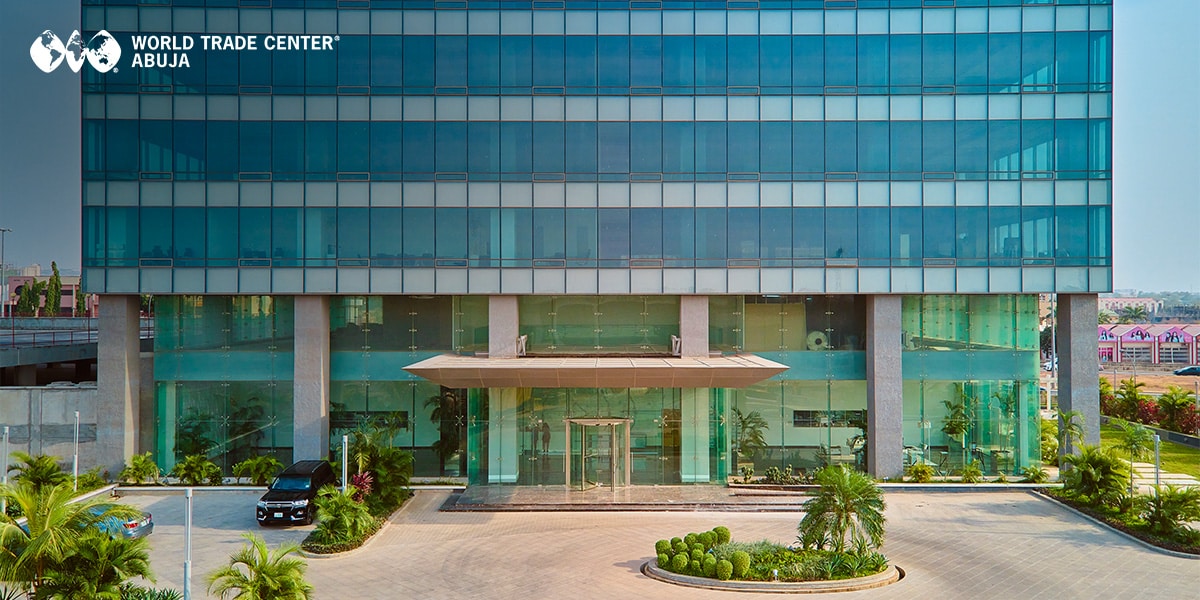Small and Medium-Sized Enterprises (SMEs) are the backbone of economies worldwide, contributing significantly to economic growth, job creation, and innovation. In Nigeria, SMEs play a crucial role in economic development, serving as a driving force for employment and poverty reduction. However, despite their significance, SMEs face challenges that hinder their full integration into Nigeria’s trade landscape. This article aims to assess the current state of SME inclusion in Nigeria’s trade and explore potential measures to enhance their participation in the global market.

A Federal Office of Statistics study shows that 97% of all businesses in Nigeria employ less than 100 employees, implying that 97% of all companies in Nigeria are “small businesses”. The SME sector provides, on average, 50% of Nigeria’s employment and 50% of its industrial output. Indeed, there appears to be an agreement that developing SMEs in Nigeria is a step towards building a vibrant and diversified economy. (General Statistics Office, 2007).
The definition of SMEs depends mainly on the country’s development level. In most developed market economies like the United States of America (USA), the U.K. and Canada, the definition criterion adopted a mixture of annual turnover and employment levels. (Nwokoye N.G,1998)
In Nigeria, the Small and Medium Industries Enterprises Investment Scheme (SMIEIS) defines SME as any enterprise with a maximum asset base of N200 million, excluding land and working capital, with at least ten or more than 300 staff.

Small and Medium-Scale businesses can be defined as any enterprise employing between five and one hundred workers with an annual turnover of about four hundred thousand Naira (N400,000). The Federal Ministry of Commerce and Industry defines SMEs as firms with a total investment (excluding the cost of land but including capital) of up to N750,000 and paid employment of up to fifty (50) persons. SMEs exist in the form of sole proprietorships and partnerships. However, some could be registered as limited liability companies and characterized by simple management structure, informal employer/employee relationship, labour-intensive operation, simple technology, the fusion of ownership and management and limited access to capital.
The seven significant sources of funding available to SMEs in Nigeria may include but are not limited to personal resources, family and friends, partners or business associates, informal financial markets, banks, specialized funding facilities, e.g., National Economic Reconstruction Fund (NERFUND) and specialized financial institutions, e.g., Bank of Industry (BOI), Nigerian Industrial Development Bank (NIDB) etc. (Owulah S. I., (1999).
SMEs in Nigeria constitute a significant portion of the business landscape, accounting for a substantial share of the country’s Gross Domestic Product (GDP). They are diverse and dynamic, operating in various sectors, including agriculture, manufacturing, services, and technology. SMEs provide employment opportunities to millions of Nigerians and foster entrepreneurship and innovation. SMEs also aid in technological/industrial development, technology acquisition, capacity building, promotion of economic growth, increased standard of living, industrial dispersal or spread, servicing of large-scale industries, export promotion, structural transformation of rural areas, flexibility and low take-off requirements.

Despite their importance, SMEs in Nigeria encounter numerous hurdles that impede their participation in international trade. Some of these are:

1. LIMITED ACCESS TO FINANCE: SMEs often need help accessing affordable credit and financing options, hindering their capacity to invest in technology, expand operations, and meet international trade standards.
2. INFRASTRUCTURE DEFICIT: Inadequate infrastructure, such as reliable power supply, transportation networks, and digital connectivity, affects the competitiveness of SMEs and increases production costs.
3. REGULATORY BURDENS: Complex bureaucratic processes, high taxes, and inconsistent policies create barriers for SMEs in cross-border trade.
4. LACK OF INFORMATION AND AWARENESS: Many SMEs in Nigeria need to be made aware of the potential benefits of international trade or lack the necessary knowledge and resources to explore foreign markets.
5. QUALITY STANDARDS AND CERTIFICATIONS: Meeting international quality standards and obtaining relevant certifications can be costly and time-consuming for SMEs, limiting their access to global markets. (Ojiako, O. F, 2000).
Several initiatives could be implemented to enhance SME participation in Nigeria’s trade and address the challenges they face:

1. ACCESS TO FINANCE: The government and financial institutions should collaborate to create targeted financial products and incentives that cater to the specific needs of SMEs, such as low-interest loans, grants, and export financing.
INFRASTRUCTURE DEVELOPMENT: Investment in critical infrastructure projects will improve the overall business environment and reduce production costs for SMEs.
2. SIMPLIFIED REGULATIONS: Streamlining trade regulations and administrative processes will make it easier for SMEs to engage in international trade and comply with standards.
3. CAPACITY BUILDING AND TRAINING: Training and workshops on international trade, export procedures, and quality standards will empower SMEs with the knowledge and skills to compete globally.
4. MARKET INFORMATION AND NETWORKING: Establishing platforms for SMEs to access market information and connect with potential international buyers and partners can boost their export opportunities.
5. PUBLIC-PRIVATE PARTNERSHIPS (P.S.): Collaboration between the government, private sector, and international organizations is essential to create an enabling environment for SMEs in Nigeria’s trade. PPPs can facilitate knowledge transfer, resource mobilization, and technology adoption, fostering SME growth and integration into global value chains. (Mahmoud, D. 2005).
SMEs are vital drivers of economic growth and development in Nigeria. For the country to harness their full potential, addressing the challenges they face in international trade is crucial.

WTC Abuja has coined great strategies that will aid in implementing these targeted initiatives by fostering partnerships and creating an enabling environment for young creatives through our business development services, Trade shows, networking opportunities, membership services, etc., promoting the inclusive participation of SMEs in global trade, thereby unlocking their immense contributions to the economy and society at large.
Want to join a world of elite business networking and cutting-edge innovation? Click here to learn more about our Trade Services

